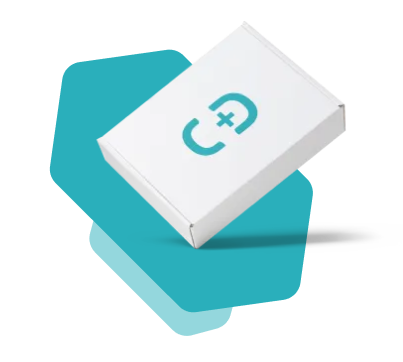It’s been a long exhausting day and you can’t wait to get to bed. Sleep is the only thing on your mind. But what if you can’t get to sleep? Or even worse, you wake up feeling like you haven’t slept at all?
Poor sleep can be caused by many things. Often there’s more than one thing going on at the same time so it’s important to check in with your GP to keep yourself healthy. Below are some of the most common reasons for waking up tired.

Mental health concerns such as anxiety or depression
Poor sleep can be the result of anxiety, depression or other mental health disorders. When we’re depressed we often feel exhausted and find it hard to get going. Anxiety often leads to lying awake at night unable to sleep. On the flip side, being chronically tired can lead to poor mental health. If you’re struggling with how you feel it’s best to speak out - talk to your GP or a psychologist to get some support.
Use of stimulants like coffee or nicotine in the evening
Sleep onset (the time it takes to fall asleep) gets delayed when we use stimulants. This could be caffeine (coffee, tea, energy drinks), nicotine, illicit drugs or prescription medications. Consuming these after lunch can make it harder to fall asleep. Try limiting yourself to the morning, drink herbal tea or decaf in the evenings, and talk to your doctor to see if your medications can be taken in the morning or changed to something less likely to keep you up.
A sleep disorder or medical condition
Do you snore? Or fall asleep during the day without trying to nap? Are you restless at night? Or waking up with sweats? We highly recommend having a check up with your regular GP if you’re always waking up tired as many medical conditions can worsen sleep. Sleep apnoea, restless legs, diabetes and thyroid conditions are some of the more common ones. Sleep disorders such as nightmares or sleep walking can also interfere with sleep quality and leave you feeling unrefreshed.
Got a clean bill of health but still not sleeping well? If getting to sleep is a problem but staying asleep isn’t you may have delayed sleep phase disorder (DSPD). If you struggle to get to sleep and stay asleep it may be insomnia.
Delayed sleep phase disorder
If your body clock is set to a later time than you want it to be, you may find it hard to get up in the morning. This is common during puberty (there’s a reason teenagers don’t want to get out of bed!), with travel across time zones or if you’re exposed to screens late at night. DSPD is a type of circadian rhythm disorder. Our circadian rhythm is like an inbuilt alarm clock that tells us when to get up in the mornings and makes us drowsy in the evenings.
How can you reset your circadian rhythm? Bright light exposure first thing in the morning is key. Going outside is best - try eating breakfast outdoors or by a sunny window. Avoid blue light exposure from screens late in the day as it decreases your natural melatonin and leaves you more alert.
Insomnia
Insomnia refers to difficulty falling and staying asleep and being unhappy with the quality of your sleep which has an impact on how well you function during the day. When you have chronic insomnia you may experience daytime fatigue, attention or memory issues, irritability or anxiety. There are a number of tips to help with insomnia.
Sleep hygiene refers to the lifestyle changes we can make to improve our sleep. A comfortable sleeping space, avoiding naps, having a good routine and a way to wind down in the evenings can make a big difference. Restricting how much time you spend in bed to match how much you’re actually sleeping can also be effective. Once you get used to falling asleep easily, start going to bed 15-30 minutes earlier and gradually increase this as your sleep improves.
Still unsure what’s making you so drowsy?
A good starting point is to keep a sleep diary. Record all your sleep/wake times and general activities over a whole week. Start with whatever time you wake up in the morning. Record when you go to bed as well as when you likely fall asleep, how well you sleep and what times you wake during the night. Make note of any stimulants and alcohol consumed and record your activities in the 2 hours before you go to bed (especially screen time or exercise).
What about medication?
Medications do play a role in helping to improve sleep quality and quantity in some situations. They’re not always suitable and shouldn’t be relied on as a long term solution. Want to see if medication is a good choice for you? Get started here and our Candor GPs will help you get some rest.
References
American Academy of Science Medicine. International classification of sleep disorders. Diagnostic and Coding manual. 3rd ed. Westchester, Ill: AASM, 2013.
Ramar K, Olson EJ. Management of common sleep disorders. Am Fam Physician 2013;88:231–38.
Lack LC, Wright HR. Clinical management of delayed sleep phase disorder. Behavioral Sleep Medicine 2007;5:57–76.









